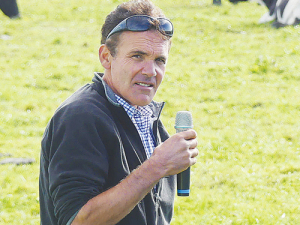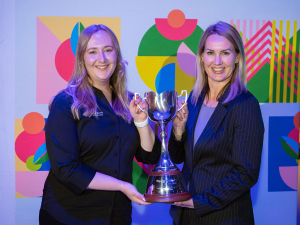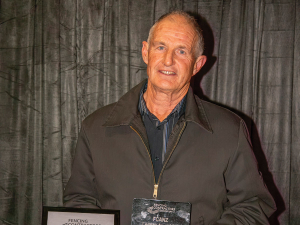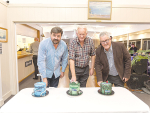Lincoln University Dairy Farm veterinarian Chris Norton told farmers at a recent focus day there that though M. bovis dominates the news, another disease -- Johne’s -- affects more farms and kills more cattle.
Johne’s was discovered first in Taranaki 100 years ago in one cow, Norton said.
He explained how the farm handles Johne’s disease, the chronic gut infection caused by Mycobacterium avium paratuberculosis (MAP) bacteria.
Usually infecting young cattle, Johne’s may remain hidden for years but leads to lower milk production and difficulty reproducing, then in late stages rapid weight loss, scouring and death, Norton said.
Pre-clinical animals may be “super-shedders” spreading the bacteria in their faeces and colostrum. The disease is highly contagious: a calf exposed to the faeces of a clinical cow is highly likely to be infected.
“I would say Johne’s is on 100% of our dairy farms; it is a silent killer. Where does it rate in relation to other diseases? I would say right up there, maybe even higher than Mycoplasma bovis. It’s killing a lot of cows every day in New Zealand.”
LUDF has run an aggressive anti-Johne’s policy for the past few seasons, calculating that the increased costs of culling and replacement would pay dividends in a lower incidence.
Norton presented figures showing that in the 2014-15 season the farm recorded 18 cows with a positive (suspect) milk test for Johne’s, and culled 15 after it was confirmed by a positive blood test.
In 2015-16 the numbers were 20 positive milk tests and 17 culled; ten were culled in 2016-17 and nine in 2017-18.
Norton said LUDF uses a test offered by LIC which detects MAP antibodies in milk. They cull affected animals early rather than carry them through winter “and having them die on us in spring”.
“What we’re achieving is a breaking of the cycle.”
He advised farmers to get infected animals out of the herd pre-calving, because Johne’s is also carried in milk and colostrum – and pooling colostrum to the calf shed “sets up a perfect storm” for spreading the disease.
Norton said LUDF’s control methods seem to be working, “reducing the actual level of infection in the herd”.
Five-point strategy
LUDF controls Johne’s in five ways:
- Test-and-cull of clinical and high risk cattle, to eliminate a major source of MAP before calving and reduce losses from clinical JD
- Calving and colostrum management to minimise exposure to MAP before birth and at calving via dams’ faeces or colostrum
- Pre-weaning calf management to avoid contact with adults and prevent exposure to a MAP-contaminated environment
- Replacement heifer management after weaning to remove susceptible heifers from any source of MAP until they join the dairy herd
- Biosecurity and buying low-risk stock to reduce the risk of importing MAP into the herd from high-risk sources.
















